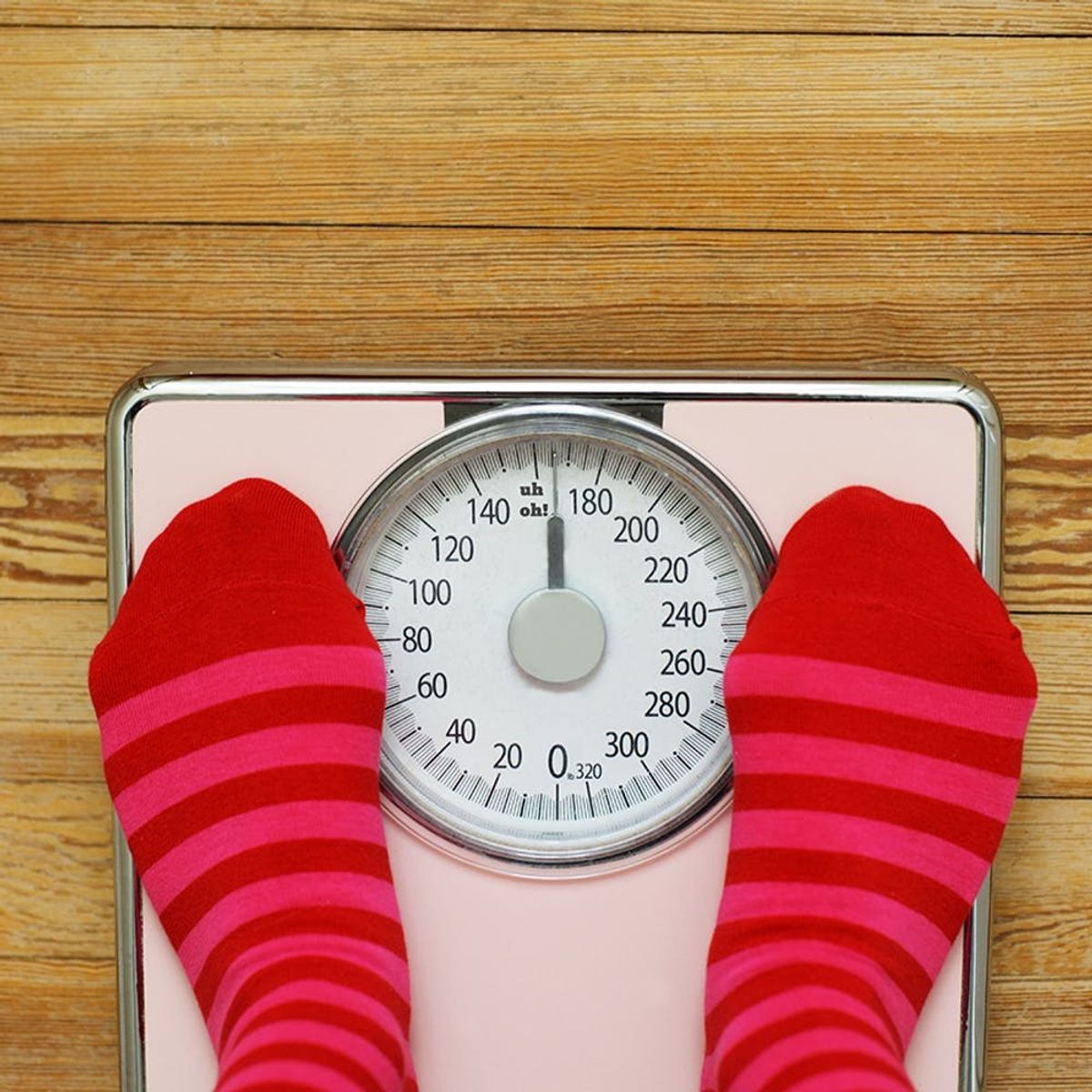Weight ain’t nothin’ but a number.
4 Indicators of Health Other Than That Number on the Scale

Once upon a time, in an earnest effort to take ownership over my health, I got a gym membership at our local YMCA. I’m no athlete, but after just a month of regular cardio and weight training, I was starting to feel really good. I had more energy, I wanted to eat better, and my skin had a healthy glow. I had promised myself when I got the membership that I wouldn’t get hung up on what the scale said, which was easy, since I didn’t own one. Then, one day when I was changing in the locker room, though a voice in my head told me not to, I gave into temptation.
I had been exercising four days a week, I felt the best I had in months, and somehow, I weighed five pounds more than when I started. What? I thought the gym was healthy! What was I doing wrong? I’ll admit, as great as it made me feel, my workouts suddenly became less appealing that day. Turns out, I had subconsciously been associating “health” with the number on the scale all along. A few years later, and I feel I have a much better grasp on what it means to be healthy. If you’d rather not step on the scale to find out if you’re healthy or not, here are a few other things to think about.

1. Body Fat: Though it didn’t feel great to see a higher number on the scale that day, it was probably because I had gained muscle. Since muscle weighs more than fat, it’s possible to lose inches and gain weight, depending on the type of workout you’re doing. That’s why weight and body mass index (BMI) aren’t always the most accurate measures of health. BMI can overestimate body fat for athletes with high muscle content and underestimate body fat in older people who have lost muscle.
While experts say both BMI and weight are worth considering when it comes to health risks — obesity can lead to blood pressure, blood sugar, and cholesterol issues, just to name a few — it’s also important to consider your specific body fat percentage. Excess body fat can lead to a number of health risks, including heart disease, diabetes, osteoporosis, sleep apnea, and even stroke.
If you want to measure your body fat, some gyms have special scales that read it through a low-voltage electric current.
2. Digestion: For another gauge of how things are going in your body, consider your digestion. Did you know your number two habits can be indicative of larger health problems? Next time you use the restroom, take a peek before you flush: According to Johns Hopkins Medicine, changes in poop’s color and consistency could indicate what’s happening in your digestive system. For example, hard and rocky stool likely means you are constipated, and your large intestine is having a hard time contracting to remove waste, while oily stools could be a sign your body isn’t digesting fat properly. Of course, if you have any concerns about your stool, talk to your doctor.
3. Skin: The skin is the body’s largest organ, so it makes sense what you see on the outside can be a sign of what’s going on inside your body. What do you see when you look at your skin? Most skin issues can be tied back to your lifestyle: Rashes or more acute breakouts can be indicative of a food allergy or sensitivity, and itchy or dry skin can be traced back to issues like dehydration, not enough fat intake, or excessive alcohol consumption. If you want to learn more about what your skin might be telling you, including specific indicators of more serious health issues, WebMD has a helpful resource.
4. Energy Levels: Before you look in the mirror at how you look, think about how you feel. What are your energy levels like? Do you need several cups of coffee to perk up in the morning? How do you feel after a long day of work? While it’s normal to get tired more frequently when you’re under stress, according to Mayo Clinic, chronic exhaustion or ongoing fatigue that isn’t relieved by rest can be signs of a deeper issue. Lifestyle factors like drinking too much, certain medications, working out too hard, or poor sleep can contribute to low energy levels. Chronic fatigue can also be a sign of anemia (low iron), depression, thyroid issues, or other underlying diseases. If you’re concerned about your lack of energy, make sure to talk to your healthcare provider about it.
How do you evaluate your health? Let us know @BritandCo.
(Photo via Getty)



















